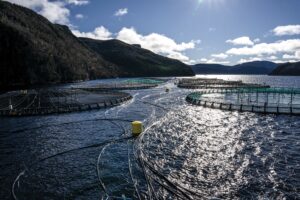
People & Culture
Kahkiihtwaam ee-pee-kiiweehtataahk: Bringing it back home again
The story of how a critically endangered Indigenous language can be saved
- 6310 words
- 26 minutes
People & Culture
In honour of Asian Heritage Month, CBC Quebec journalists asked Asian Canadians how they carry their culture

A series called Carrying Our Culture has launched for Asian Heritage Month. The CBC Quebec team, all first or second-generation immigrants, spoke with Asian Canadians and asked them “How do you carry your cultural heritage, in big ways or small?” Canadian Geographic spoke with four of the producers about what the series means to them.
Shahroze Rauf is a Pakistani journalist based in Montreal. They work with CBC radio Quebec.
Jennifer Yoon is a Korean Canadian multi-platform journalist. She is a news reporter with CBC Quebec.
Rana Liu is a communications officer with CBC Quebec. She works to bridge the gap between the newsroom and the community.
Jessica Wu is a Montreal based journalist. She works on the CBC Quebec radio morning show.
Shahroze: The beauty of the question of “how do you carry your culture” is it encompasses all experiences of what carrying one’s culture looks like. Whether that be drinking chai or wearing traditional clothes or something as complex and intense as what someone’s journey looks like as an immigrant.
Jennifer: It’s a complex question, because it’s not like a backpack or a shirt. It’s not something that you can take off and that’s partly why people have such hesitancy [to speak about it]. It’s a part of you that doesn’t change. Taking a second to reflect on what that means and how that manifests is really important, and something that we sometimes don’t have the time and space to do.

Rana: Before, the idea of Asian Heritage Month was just a month for us to mark off like, “Okay, Asians exist in May and then we disappear.” We saw this as an opportunity for us to change how the newsroom is sharing the stories about past, present and future Asian communities. Being able to create this with an Asian Canadian team at CBC with the newsroom supporting us has been really validating and positive.
Jennifer: For Asian heritage month, we have very saccharine coverage, that’s like “we’re doing great, there are these amazing role models.” While it’s great to see that kind of pride, it’s also true that the other side of the coin exists, that it’s a nuanced, complicated, sometimes painful, sometimes traumatic experience. I think that if we show Asian Quebecers their diversity and all the messy gray areas that we exist in, it’s a representation that’s better for everyone.
Jessica: I feel fortunate that I grew up on the south shore of Montreal, where there are a lot of second generation immigrants. A lot of friends come from all over the world and also have those identity crises. Now we’re all growing up, working in media and storytelling and it’s really interesting that there’s a new narrative coming out and we’re all sharing our experiences.
Jennifer: When I went back to Korea I had a severe identity crisis. I had figured out how to be Korean Canadian, a term that smashes these two experiences together, but I had not thought about what it would be like when I went back to Korea. Elders that I met told me I’m not really Korean. I finally made peace with this identity when I realized that by insisting that I’m Korean, even though I am both Korean and Canadian, is a grand tradition of Koreans who have said, “No, I’m Korean, no matter what you tell me. I’m Korean, despite oppression or colonization. We are hanging on to our culture.” That’s what my culture means to me, being defiantly Korean and Canadian and feeling at peace with that.

Rana: I lost both my grandparents on my mother’s side in China to COVID and it was thanks to these people here that I got to carry my culture every day. I’m biracial, so growing up, it was easier to be part of this melting pot and erase my background. Through this project, I’ve gotten the chance to be proud of my culture, explore it and share it. When grandparents pass, you feel like a light has died. Your heritage leaves you. Through this project, through the conversations we’ve had, we’ve been able to keep that light.
Jessica: I think for me, growing up here I never wanted to carry my culture because carrying my culture meant not fitting in. So for me, working on this project and talking about sharing your culture, and seeing the value in carrying your culture was very healing for me. It’s also important to not hold it against yourself or your parents, because you had those feelings. It was important to have those conversations about the privilege of being able to carry culture. Before carrying my culture meant not fitting in, but now I see it as a superpower.
Shahroze: Growing up, I was very immersed in [my culture], because my parents were very proud of our heritage. I’m from Pakistan, and that country went through what is known as a really good but also a really bad thing, partition. It tore our family and many other Pakistani and Indian families apart. My dad ended up immigrating here and I was born here. We had so many weird intersecting identities, being Canadian, being formally Indian, being Pakistani and that was difficult. When I left my home and came here to Montreal, it was a huge culture shock for me. That’s when I realized the privilege of carrying one’s culture. I realized that if I don’t carry my culture in a meaningful or intentional way, that I do risk losing it and not being able to pass it on.
Are you passionate about Canadian geography?
You can support Canadian Geographic in 3 ways:

People & Culture
The story of how a critically endangered Indigenous language can be saved

Science & Tech
Celebrating Canadian Innovation Week 2023 by spotlighting the people and organizations designing a better future

People & Culture
A celebration of the Canadian Coast Guard’s renowned search-and-rescue capabilities — and more — as the special operating agency turns 60

Environment
Struggle and success in Atlantic Canada, where aquaculturists strive to overcome climate change and contamination while chasing a sustainable carbon footprint